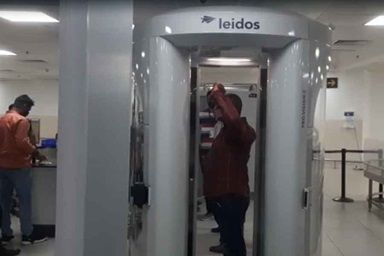In a significant development aimed at enhancing airport security measures, full-body scanners and Computed Tomography X-ray (CTX) machines are expected to be installed at the Delhi airport by May 2024, according to a senior official from the Bureau of Civil Aviation Security (BCAS). This initiative aligns with BCAS’s ongoing efforts to implement advanced security technologies at key airports across the country.
The introduction of full-body scanners marks a crucial advancement in passenger screening, offering a more comprehensive approach to security checks. BCAS Director General Zulfiquar Hasan revealed on Friday (December 15) that the installation deadline for these scanners and CTX machines is being extended due to provisioning issues, and discussions are ongoing with airport operators to address the installation challenges.
The initial deadline for installing full-body scanners at airports with over 10 million annual passenger traffic and CTX machines at airports with over 5 million passengers was set for December 31. However, the revised deadline, now expected by May 2024, demonstrates the commitment to ensuring a smooth and phased deployment of these advanced security technologies.
CTX machines leverage Computer Tomography X-ray technology, allowing passengers to keep electronic devices within their hand baggage during security checks. This eliminates the need for passengers to separately remove and place electronic items in trays, streamlining the security check-in process.
BCAS plans to deploy full-body scanners in a phased manner, and the installation of scanners based on computer tomography technology is expected to provide a two-dimensional view of the objects inside hand baggage. This not only enhances security but also accelerates the security check-in process, contributing to a more efficient and passenger-friendly experience.








